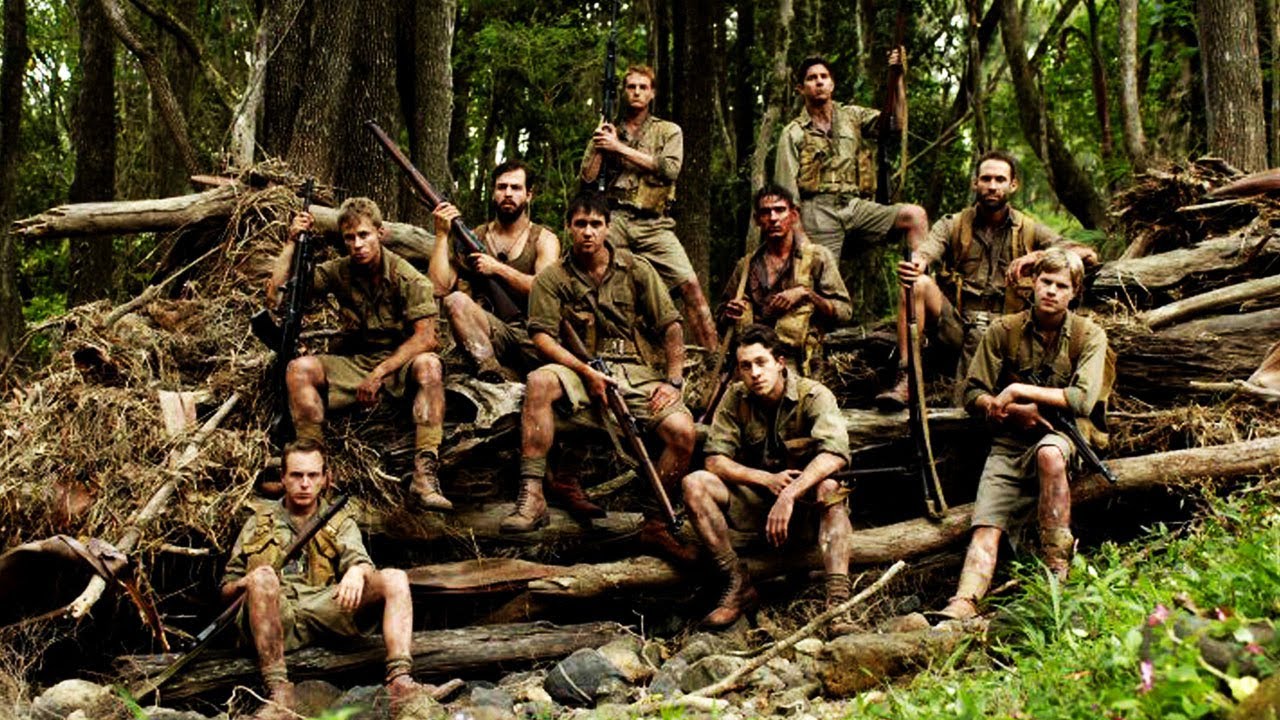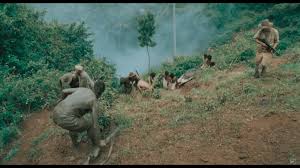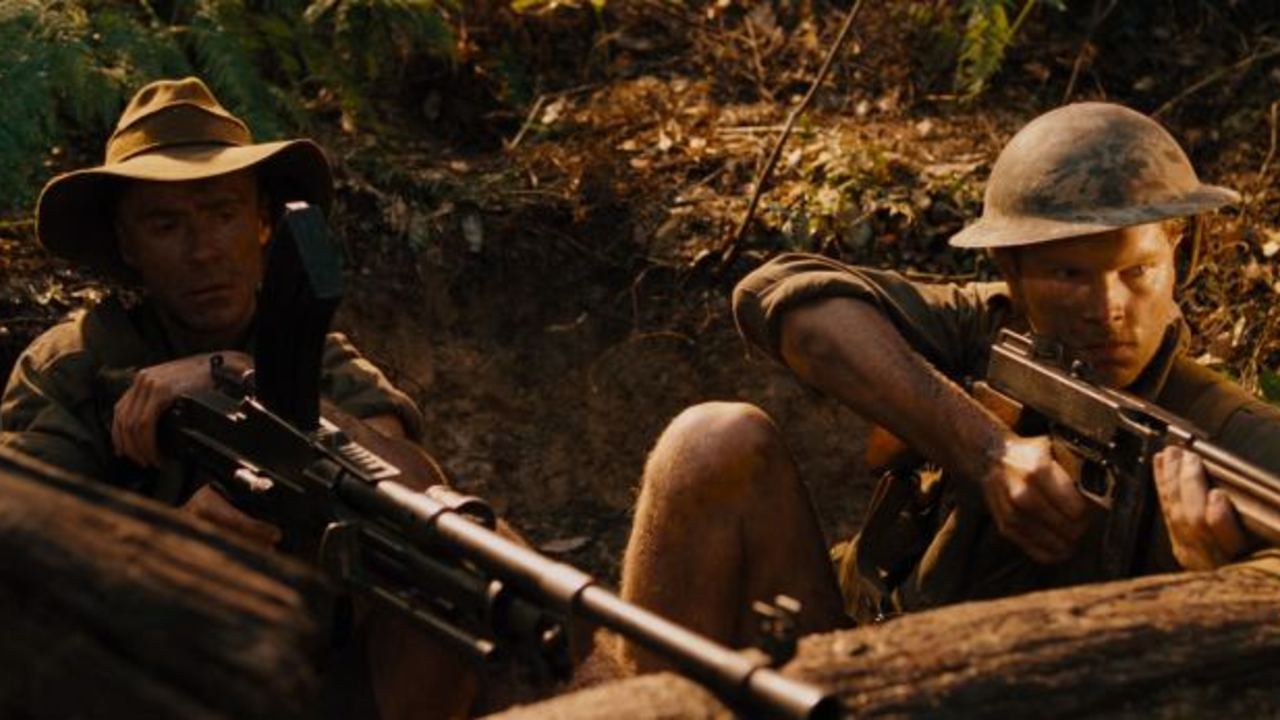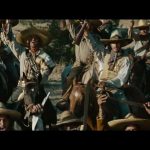🎬 Kokoda (2006)

Kokoda (2006): A Harrowing Tale of Survival in the Face of War
Kokoda (2006), directed by Alister Grierson, is a gripping and intense Australian war film that chronicles the brutal struggle of Australian soldiers as they fight to defend their position against the Japanese army during World War II. Based on the true events of the Kokoda Track campaign in Papua New Guinea, this film provides a harrowing look at the horrors of war, the strength of the human spirit, and the resilience of soldiers in extreme conditions. With a focus on survival, brotherhood, and the harsh realities of combat, Kokoda stands as a powerful tribute to the soldiers who fought and died in one of the most grueling battles of the Pacific Theatre.
Plot Overview: A Battle of Endurance and Survival
Set in 1942, Kokoda tells the story of a group of inexperienced Australian soldiers who are sent to defend a critical position along the Kokoda Track in Papua New Guinea. Their mission is to halt the Japanese advance towards Port Moresby, which, if captured, could lead to the Japanese invading Australia. The film begins with the soldiers, mostly fresh recruits, being thrust into the horrors of combat as they are tasked with holding a strategic position in the dense jungles of Papua New Guinea.
The soldiers face an enemy that is ruthless, disciplined, and skilled in jungle warfare. As they trek through the unforgiving terrain, battling not only the Japanese forces but also the extreme conditions of the jungle, they experience the harsh realities of war. The physical and mental tolls of battle, coupled with the constant threat of death, push these young men to their limits. The film captures the extreme heat, disease, hunger, and exhaustion that the soldiers endure as they fight to survive.
As the men face seemingly insurmountable odds, the film shifts its focus to the psychological and emotional struggles of the soldiers. Through their bonds of brotherhood and loyalty, they find the strength to keep going, despite the overwhelming losses they suffer. The battle is not just against the enemy, but against the elements, fatigue, and fear itself. The film builds tension through moments of high-stakes combat, as well as the quiet moments of reflection that showcase the soldiers’ internal struggles.
Themes: Survival, Sacrifice, and Brotherhood
The central theme of Kokoda is survival. The soldiers are forced to confront not only the external threat of the Japanese army but also the internal pressures of fear, fatigue, and the desire to give up. As the soldiers fight for their lives, they are pushed to their physical and mental limits. The film powerfully portrays how war tests the resilience of the human spirit, especially when survival seems impossible. The harsh conditions of the Kokoda Track—characterized by thick jungles, treacherous terrain, and constant rainfall—serve as a constant reminder of the unforgiving nature of war.
Sacrifice is another prevalent theme throughout the film. The soldiers are called upon to make difficult decisions and sacrifices, whether it’s risking their lives for the survival of their comrades or enduring unbearable physical hardships. As the story unfolds, the men are faced with loss and grief, having to come to terms with the death of their fellow soldiers. The theme of sacrifice underscores the emotional depth of the film, highlighting the camaraderie and personal connections that are formed amidst the chaos of war.
Brotherhood is also a significant theme in Kokoda. The soldiers’ unity and reliance on one another become their greatest strength. As the men endure brutal conditions and face imminent danger, they learn to trust and depend on each other, finding comfort in the shared experience of war. The bonds formed between these men are depicted with great authenticity, emphasizing the importance of solidarity and loyalty in times of crisis.
Character Development: The Journey from Inexperience to Courage
The film introduces a diverse group of soldiers, each with their own unique background and personality. What unites them is their shared experience as they are thrust into a battle for survival in a foreign and unforgiving environment. As the story progresses, the characters undergo significant development, from inexperienced soldiers to seasoned fighters, each struggling to come to terms with the horrors they face.
- Jack (portrayed by Michael J. Fox): Jack, a character who begins as a reluctant soldier, serves as the emotional core of the film. His transformation from a naive recruit to a determined fighter highlights the psychological toll that war takes on the soldiers. Jack’s journey is one of growth and resilience, and his personal development is a key aspect of the film’s emotional depth.
- Supporting Characters: The supporting characters in Kokoda each bring their own strengths and vulnerabilities to the narrative. As the soldiers experience the horrors of war, they bond over their shared experiences, and their individual arcs add emotional complexity to the overall story. The relationships between the soldiers—marked by moments of camaraderie and tension—add richness to the film’s exploration of war and its effects on the human psyche.

Cinematography: A Raw and Intense Depiction of War
The cinematography in Kokoda is one of its most striking features. The dense jungle environment of Papua New Guinea is beautifully captured, yet the film’s use of this terrain is far from romanticized. The jungle is a menacing and oppressive force in the film, with its thick foliage, muddy paths, and unrelenting rainfall all contributing to the soldiers’ sense of entrapment and vulnerability. The claustrophobic feeling of being in the jungle is heightened by the cinematography, which often uses tight shots to convey the soldiers’ sense of isolation and fear.
The combat scenes in Kokoda are raw and unflinching. The film doesn’t shy away from showing the brutal realities of warfare, from the intense firefights with the Japanese soldiers to the horrific injuries sustained by the men. The film’s realistic portrayal of battle adds to its emotional impact, immersing the audience in the harrowing experience of the soldiers.
The cinematography also captures the psychological toll of the journey. The soldiers are shown struggling with exhaustion, hunger, and fear, and the film takes care to emphasize the mental strain they endure. The intimate close-ups of the characters during these moments of vulnerability deepen the emotional connection between the audience and the soldiers, making their struggles feel even more personal.
Critical Reception: Praised for Its Realism and Emotional Impact
Kokoda has been praised for its gritty realism and emotional depth, with critics highlighting its honest portrayal of the horrors of war. The film’s emphasis on survival and sacrifice resonates with viewers, offering a poignant look at the personal cost of war. Critics have also lauded the performances of the cast, particularly Michael J. Fox, for his portrayal of a soldier struggling to find his courage in the face of overwhelming adversity.
The film’s realistic depiction of combat and the psychological strain of war has been widely appreciated, and its portrayal of the Kokoda Track campaign has earned it recognition for shedding light on a lesser-known chapter of World War II history.
Final Thoughts: A Heart-Wrenching and Uncompromising War Drama
Kokoda (2006) is a gripping and emotional war film that offers an unflinching look at the harsh realities of combat. Through its portrayal of the Kokoda Track campaign, the film captures the spirit of endurance, sacrifice, and brotherhood that defined the Australian soldiers’ experience during World War II. With strong performances, realistic cinematography, and a compelling narrative, Kokoda stands as a powerful tribute to the soldiers who fought and died in one of the most brutal battles of the Pacific Theatre.









